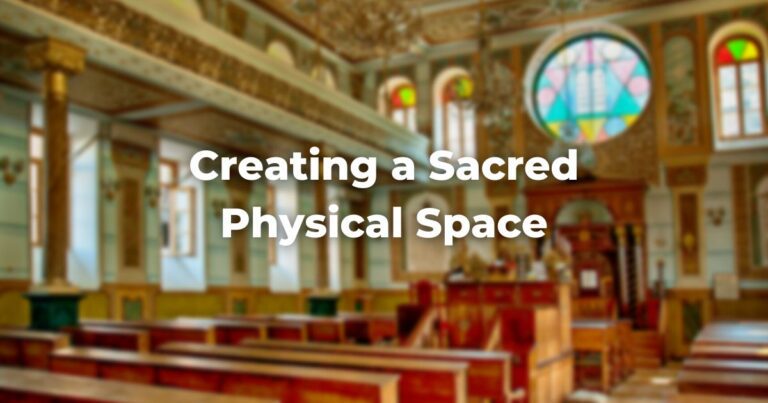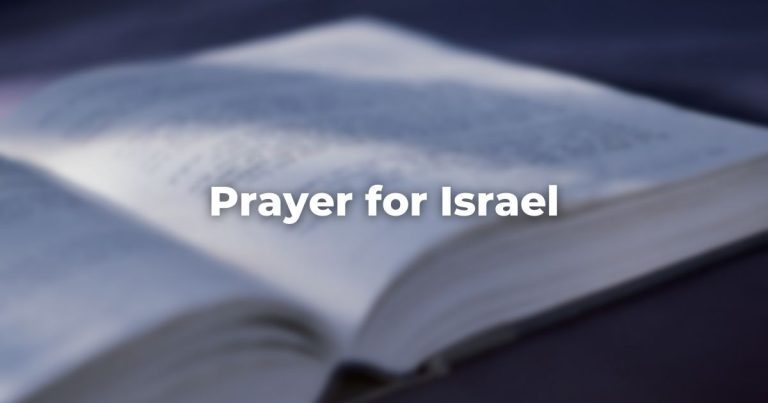The Obligation of Tzedakah
Classical Jewish law required members of a community to contribute to the needs of the collective—the functional equivalent of a tax in modern society.
(For more see our article: The Importance of Charitable Giving)
The amounts varied with the wealth of the individual, but there was no escaping this obligation, as Maimonides noted (Mishneh TorahRefers to the first five books of the Hebrew Bible, the Tanakh, also called the Five Books of Moses, Pentateuch or the Hebrew equivalent, Humash. This is also called the Written Torah. The term may also refer to teachings that expound on Jewish tradition. Read more, Hilchot Matnot Aniyiim 7:10):
“The court may even seize property in its owner’s presence and take from that person what it is proper for that person to give. It may pawn such possessions for purposes of charity, even on the eve of the Sabbath.”
(Maimonides is drawing on sources at Gittin 7b, where it is noted that the poor too must give charity. In this regard, see also Bava Batra 8b and Ketubot 49b, where the point is made that compulsion may be applied to effect compliance. The Tosafot disagree; see also the Shulchan Arukh, Yoreh De’ah 248:1–2.)
Furthermore, the degree to which a person was obligated to contribute to the poor became the mark of membership in a community (Mishneh Torah, Hilchot Matnot Aniyiim 9:12, drawing on rabbinic sources found at Tosefta Peah 4:9, Yerushalmi Bava Batra 1:4, 12d, and Bava Batra 8a).
According to these sources, depending on how long someone settles in a community, their obligation changes.
One who settles in a community for thirty days becomes obligated to contribute to the charity fund together with the other members of the community. One who settles there for three months becomes obligated to contribute to the soup kitchen.
One who settles there for six months becomes obligated to contribute clothing for the poor. One who settles there for nine months becomes obligated to contribute to the burial fund for burying the community’s poor people.
The thick sense of community underlying Jewish law means that Jews do not have the luxury of saying that the poor should just take care of themselves or go elsewhere to seek the aid of some other community; the members of a Jewish community are responsible for each other, whether they like it or not.
The Application of Tzedakah in Historical Jewish Communities
In rabbinic law, there are three primary forms of granting relief to the poor: feeding them in soup kitchens, arranging for low-cost or cost-free medical attention, and supplying them outright with money drawn from charity funds.
The MishnahA collection of rabbinic teachings edited in Israel around 225 CE. Organized in six sedaraim by subject matter and dealing with both ritual and civil law. Both the Jerusalem and Babylonian Talmud are expansive discussions of the Mishnah. Read more establishes soup kitchens for the daily dietary needs of the poor. It also prescribes that a traveling poor person be given no less than a loaf of bread at such a kitchen, called a tamḥui in the traditional literature; if they stay overnight, the townspeople must supply enough food for a night’s lodging.
If the stay includes a Shabbat, however, the locals must give the traveler three meals (Mishnah Peah 8:7; and see Tosefta Peah 4:8, 10; Yerushalmi Eiruvin 3:1, 20d; Shabbat 118a, Bava Metzia 8b–9a, and Sanhedrin 17b).
In the medieval period, synagogues were the site of daily food distribution to the local and traveling poor.
As demonstrated by Israel Abrahams (in Jewish Life in the Middle Ages [1896; reprint, Philadelphia: The Jewish Publication Society, 1993], p. 311), this system was gradually superseded by three other forms of aid that included dietary assistance: reception of poor travelers in the homes of the rich, provision for vagrants in communal hostelries or inns, and aid offered by benevolent societies for strangers and the resident poor.
Although there was no formal institution akin to the tamḥui to give medical care to the poor, physicians gave their services freely.
The TalmudReferring to one of two collections, the Jerusalem and Babylonian Talmuds, edited in the 6th century, that contains hundreds of years of commentary, discussion, and exploration of the ideas in the Mishnah. One could describe it as Mishnah + Gemara = Talmud Read more (at Taanit 21b:15-16) approvingly notes the example of Abba the Bleeder, who placed a box outside his office where his fees were to be deposited.
(Taking blood from a sick person was a common medical therapy in ancient times.)
Whoever had money put it in, but those who had none could come in and take advantage of his services without feeling embarrassed.
S. D. Goitein (in A Mediterranean Society [Berkeley: University of California Press, 1971], vol. 2, p. 133) offers similar examples among medieval Jewish physicians, and it was not until the nineteenth century that a rabbi needed to rule that the communal court should force physicians to give free services to the poor if they do not do so voluntarily (Rabbi Eleazar Fleckeles, T’shuvah Mei-ahavah, to Shulchan Arukh, Yoreh De’ah 336 [ed. Prague, 1815, vol. 3, p. 69b]).
Moreover, the obligation to heal the poor devolves upon the community as well as the physician.
The sick, in fact, enjoy priority over other indigent persons in their claim to private or public assistance, and they may not refuse medical aid out of pride or a sense of communal responsibility (Shulchan Arukh, Yoreh De’ah 249:16 and Shulchan Arukh, Yoreh De’ah 255:2).
The most substantial form of assistance to the poor was the charity fund.
Eligibility to use the charity fund was generally limited to the resident poor rather than to passers-through, however (Tosefta Peah 4:9).
The charity fund provided clothing as well as food, although food for the starving took precedence over clothing for the naked (Bava Batra 9a; Shulchan Arukh, Yoreh De’ah 251:7).
Community authorities also arranged for shelter, usually through a compulsory hospitality rotation wherein the townspeople were required to take turns providing lodging for guests (gloss of the Rema to Shulchan Arukh, Choshen Mishpat 163:1; see also Arukh Hashulchan, Choshen Mishpat 163:1).
Moreover, our sources tell us: “Even a poor person who lives entirely on charity must give charity to another poor person” (Bava Kamma 119a, Gittin 7b; Mishneh Torah, Hilchot Matnot Aniyiim 7:5; and Shulchan Arukh, Yoreh De’ah 248:1 and Shulchan Arukh, Yoreh De’ah 251:12).
This requirement is rooted in the Jewish tradition’s concern with preserving the dignity of the poor (Deuteronomy 24:10–11; Mishnah Ketubot 13:3; Ketubot 43a; Shulchan Arukh, Yoreh De’ah 251:8; Shulchan Arukh, Even HaEzer 112:11, 16; and Shulchan Arukh, Even HaEzer 93:4).
Even if this provision of the law meant that one poor person would give something to another poor person who, in turn, would return it to the first, each person had to have the dignity of being a contributor to the community’s welfare.
How Much is Too Much
The rabbis of classical times were worried that some people would not give enough, but also that others would give too much, thus risking pushing themselves into poverty. To avoid both, the rabbis defined this duty’s upper and lower limits.
Each person had to give a minimum of a third of a shekel (Bava Batra 9a), but normally one was expected to give ten percent of one’s income.
When the economy switched from an agricultural base to a monetary one, the rabbis applied the laws demanding a tithe of one’s crops for the poor codified at Deuteronomy 14:28–29 to money (Sifrei D’varim 52 on Deuteronomy 14:22).
At most, people may give away no more than one-fifth of their assets (Ketubot 50a and Mishneh Torah, Hilchot Matnot Aniyiim 7:5), and having done so once, they may give only from their income in succeeding years (Shulchan Arukh, Yoreh De’ah 249:1).
They may, however, specify in their will their desire to distribute any amount of their assets to charity as a gift (Shulchan Arukh, Choshen Mishpat 241–249, especially 241:5 [where it is noted that one may specify the use to which a gift one offers will later be put]), and there are even leniencies in the procedure for specifying such disbursements if the person is seriously ill (Shulchan Arukh, Choshen Mishpat 250–258).
In modern times this would include permission for Jews to establish in their lifetime foundations or charitable remainder trusts that will distribute any amount of their assets to charities of their choosing after their death.
In addition to contributing to communal efforts to help the needy, individuals were also held responsible for responding directly to a request from someone asking for money on the street (Mishneh Torah, Hilchot Matnot Aniyiim 7:7, where Maimonides extends the rule given in Bava Batra 9a to apply not only to communal collectors but to each individual in need), although one may give a minimal amount in such circumstances.
One must remember that “God stands together with the poor person at the door, and one should therefore consider before whom one is [actually] standing” (Va-yikra Rabbah 34:9).
Adapted with permission from The Observant Life.
Authors
-

Rabbi Elliot Dorff, Ph.D., Distinguished Service Professor of Philosophy at American Jewish University, has written or edited 29 books and over 200 articles on Jewish theology, law, and ethics. His latest two books are Modern Conservative Judaism: Evolving Thought and Practice and Ethics at the Center: Jewish Theory and Practice for Living a Moral Life. Awarded four honorary doctorates, he has chaired four scholarly organizations, Jewish Family Service of Los Angeles, and the Rabbinical Assembly’s Committee on Jewish Law and Standards. His wife, Marlynn, and his four children and eight grandchildren are, he thinks, more important than anything listed above.
View all posts -

The Observant Life: The Wisdom of Conservative Judaism for Contemporary Jews distills a century of thoughtful inquiry into the most profound of all Jewish questions: how to suffuse life with timeless values, how to remain loyal to the covenant that binds the Jewish people and the God of Israel, and how to embrace the law while retaining an abiding sense of fidelity to one’s own moral path in life. Written in a multiplicity of voices inspired by a common vision, the authors of The Observant Life explain what it means in the ultimate sense to live a Jewish life, and to live it honestly, morally, and purposefully. The work is a comprehensive guide to life in the 21st Century. Chapters on Jewish rituals including prayer, holiday, life cycle events and Jewish ethics such as citizenship, slander, taxes, wills, the courts, the work place and so much more.
View all posts







